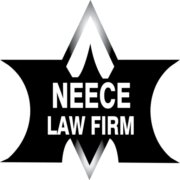Best Adoption Lawyers in North Carolina
Share your needs with us, get contacted by law firms.
Free. Takes 2 min.
Free Guide to Hiring a Family Lawyer
Or refine your search by selecting a city:
List of the best lawyers in North Carolina, United States
About Adoption Law in North Carolina, United States
Adoption in North Carolina is a legal process that establishes a permanent, legal parent-child relationship between a child and an individual or couple who is not the child's biological parent. This process can be initiated for infants, older children, or even adults and is governed by North Carolina General Statutes, primarily Chapter 48. Adoption may occur through public agencies, private agencies, independent arrangements, or through step-parent and relative adoptions. After an adoption is finalized, the adoptive parents have all legal rights and obligations of biological parents, and the adopted child receives the same status as a biological child in the eyes of the law.
Why You May Need a Lawyer
Adoption law is complex, and navigating the process can be emotional and stressful. There are many situations where the advice and guidance of a lawyer are crucial including:
- Negotiating and drafting adoption agreements
- Interpreting adoption laws and requirements
- Petitioning the court and representing clients during hearings
- Addressing issues related to birth parent consent or relinquishment of rights
- Responding to contested adoptions
- Ensuring compliance with interstate or international adoption laws (ICPC or Hague Convention)
- Dealing with post-adoption contact agreements and records
The involvement of a lawyer helps to ensure that all legal requirements are met and reduces the risk of complications that could jeopardize the adoption.
Local Laws Overview
North Carolina adoption laws address many important aspects of the process. Key points include:
- Eligibility: Any adult may petition to adopt in North Carolina, but there are eligibility requirements for both the adoptive parent and the adoptee. Single individuals, married couples, and stepparents may all be eligible to adopt.
- Types of Adoption: These include agency adoptions (public or private), independent adoptions, step-parent adoptions, and relative adoptions.
- Consent: The law requires the consent of the child’s biological parents, legal guardian (if any), and the child (if 12 or older) unless the court waives this requirement. There are exceptions if parental rights have been terminated or if a parent is deemed unfit or unavailable.
- Home Study: Most forms of adoption require a pre-placement assessment, often called a "home study," conducted by a licensed agency to evaluate the suitability of the prospective parents.
- Placement: Placements can be direct (from birth parent to adoptive parent), agency facilitated, or through foster care.
- Waiting Periods and Revocation: Birth parents may revoke consent within a short window, typically up to 7 days after signing, under state law.
- Finalization: An adoption is finalized after a court hearing, where a judge reviews the case to ensure all legal requirements are met.
- Adoption Records: Adoption records in North Carolina are sealed and confidential, accessible only by court order or as provided by law.
Frequently Asked Questions
What types of adoption are recognized in North Carolina?
North Carolina recognizes several types of adoption, including agency adoptions (public or private), independent or direct placement adoptions, relative adoptions, and step-parent adoptions.
Who can adopt in North Carolina?
Any adult may petition to adopt. Married couples must generally file jointly unless one spouse is the child's parent or the court finds good cause to permit otherwise.
Do birth parents have to consent to the adoption?
Yes, consent from the birth parents is usually required unless their rights have been terminated or they are otherwise unavailable or unfit. The child, if age 12 or older, must also give consent unless the court waives this requirement.
What is the "home study" in adoption?
The home study is a pre-placement assessment conducted by a licensed agency to evaluate the prospective adoptive parents' suitability. This includes interviews, background checks, and home visits.
How long does the adoption process usually take?
Timelines vary. Private adoptions may take several months, while agency or foster care adoptions could take longer. Factors that affect timing include completion of the home study, legal requirements, and court schedules.
Can adult adoption occur in North Carolina?
Yes, North Carolina law allows adult adoption. This can help formalize existing parent-child relationships, such as with adult stepchildren or foster children.
Are adoption records open or closed in North Carolina?
Adoption records are sealed and confidential. Access requires a court order or specific legal grounds, and only limited voluntary information exchange is permitted.
Can same-sex couples adopt in North Carolina?
Yes, same-sex couples have the same rights to petition for adoption as opposite-sex couples under state and federal law.
What happens if a parent revokes consent after placement?
Birth parents typically have up to 7 days after signing the consent to revoke it. After this period, consent is irrevocable except in rare cases such as fraud or duress.
What legal risks are there in independent adoption?
Independent adoptions can carry risks such as incorrect paperwork, invalid consents, or disputes with biological parents. Legal representation helps minimize these risks by ensuring compliance with all requirements.
Additional Resources
- North Carolina Department of Health and Human Services (DHHS) - Division of Social Services
- Children's Home Society of North Carolina
- AdoptUSKids North Carolina
- North Carolina Bar Association - Family Law Section
- Local social services offices in your county
- Licensed private adoption agencies in North Carolina
- National Foster Care and Adoption Directory
Next Steps
If you are considering adoption in North Carolina, you should start by gathering basic information about the type of adoption you are pursuing. Next, consult with a licensed adoption agency or a family law attorney experienced in adoption to discuss your specific situation and ensure you understand all requirements. Prepare necessary documents, complete any required training or home studies, and, with the guidance of your legal counsel, begin the formal adoption process. Legal support can help you avoid costly errors and delays, and provide peace of mind as you expand your family. If you face legal questions or complicated circumstances, contact a qualified adoption attorney in your area for a consultation.
Lawzana helps you find the best lawyers and law firms in North Carolina through a curated and pre-screened list of qualified legal professionals. Our platform offers rankings and detailed profiles of attorneys and law firms, allowing you to compare based on practice areas, including Adoption, experience, and client feedback.
Each profile includes a description of the firm's areas of practice, client reviews, team members and partners, year of establishment, spoken languages, office locations, contact information, social media presence, and any published articles or resources. Most firms on our platform speak English and are experienced in both local and international legal matters.
Get a quote from top-rated law firms in North Carolina, United States — quickly, securely, and without unnecessary hassle.
Disclaimer:
The information provided on this page is for general informational purposes only and does not constitute legal advice. While we strive to ensure the accuracy and relevance of the content, legal information may change over time, and interpretations of the law can vary. You should always consult with a qualified legal professional for advice specific to your situation.
We disclaim all liability for actions taken or not taken based on the content of this page. If you believe any information is incorrect or outdated, please contact us, and we will review and update it where appropriate.
Browse adoption law firms by city in North Carolina
Refine your search by selecting a city.















